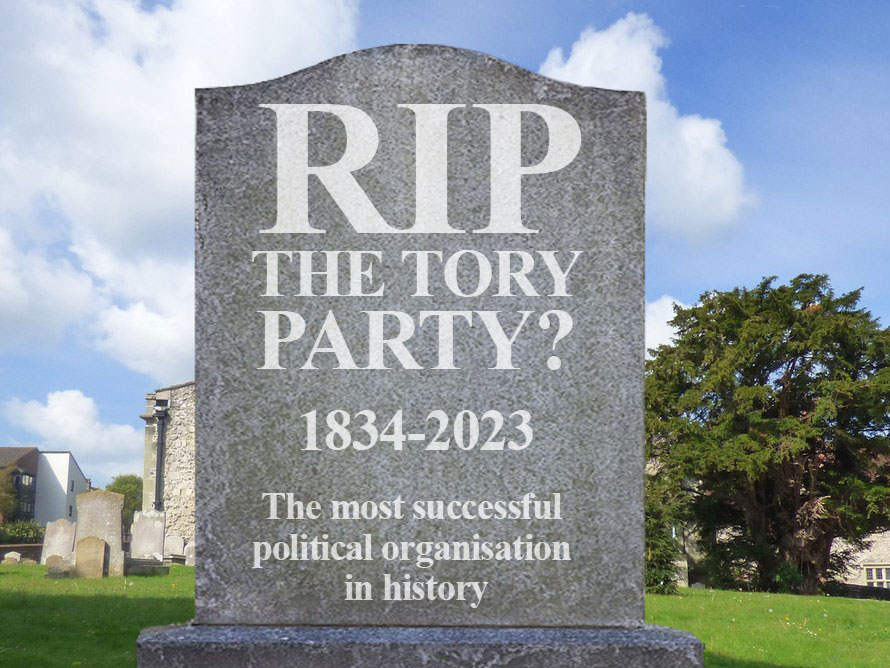Is this the death of the Conservatives? A new poll suggests the Tories could win less than 100 seats at the next election, a historic first. Some hear the tolling of funeral bells.
Tories on track for worst result in 300 years
 Party games: Since 1900, the Tory Party has been in power for a total of 78 years.
Party games: Since 1900, the Tory Party has been in power for a total of 78 years. Glossary
Conservative party - A British political party. Members are known as Tories.
Robert Peel - The UK's Conservative prime minister from 1834 to 1835 and 1841 to 1846. He is known for setting up London's Metropolitan Police Force.
James II - The King of England, King of Ireland and as James VII, King of Scotland. He was born in 1633 and died in 1701.
Labour party - The main left-wing political party in the UK.
Theresa May - The prime minister of the UK between 2016 and 2019. Her attempts to secure a Brexit deal ultimately failed, resulting in her resignation.
David Cameron - The UK's Conservative Party prime minister from 2010 to 2016.
Ed Miliband - The British Labour party leader from 2010 to 2015.
Inflation - An increase in the price of goods in an economy.
Brexit - The UK's departure from the European Union.
Boris Johnson - The Conservative Prime Minister of the UK and head of the government from 2019 to 2022.
Dogmatic - Strongly announcing your beliefs as if they are facts, and being unwilling to change your mind.
Free market - When the government does not interfere with the economy, and the laws of supply and demand dictate trading.
Privatisation - When a business, industry or service that is run by the government is moved to be run by private companies.
